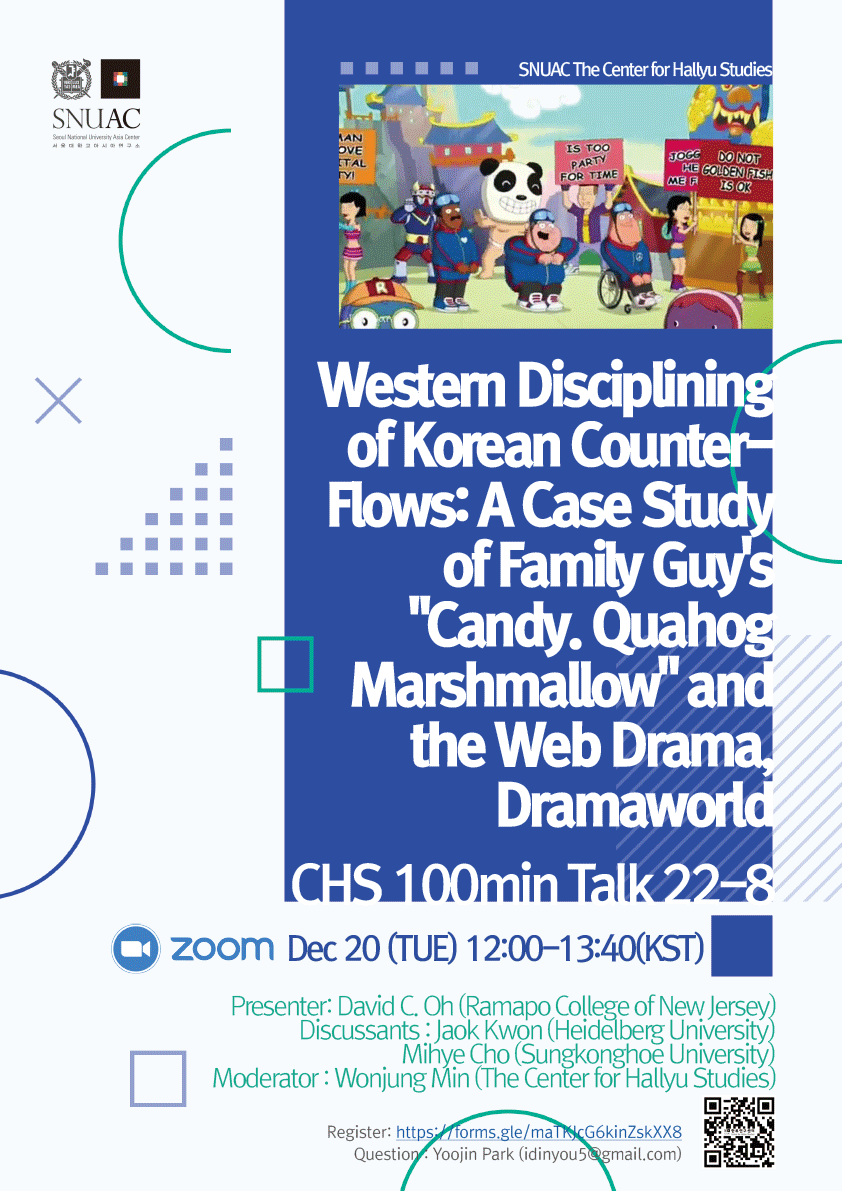
The transnational flows of Korean media and its reception in the US has been highly celebrated. Citing BTS’s global popularity, Parasite’s (2020) unlikely Academy win, and the viral success of Squid Game (2021), there have been numerous articles about the rising awareness and critical reception to Korean media. Ju Oak Kim (2021), for instance, has referred to what she sees as a transformational stage in which Korean media have moved from the margins of Western reception to the mainstream, dubbing this “the Third Korean Wave.” This would mark Korean media movements as extraordinary for their successful counter-flows from East to West and for being outside the Anglophone hegemonic dominance of global media. If so, thiruns against all previous research on mediated counter-flows that suggest that Western media policy, media institutions, and audiences discipline such movements (Thussu, 2007). Certainly, Western media, particularly U.S. media, have been self-protective, restricting distribution into its market. The purpose of this talk, then, is to address how two media texts that are created in the West – a popular cartoon and a web drama co-production – ambivalently discipline, re-imagine, confront, and facilitate these movements. It is meaningful to consider the ways in which the West is mediating the ambivalent inclusion of a non-Western mediascape during a time in which Korea is emerging as an influential media hub and in which mediascapes are increasingly a global pastiche. Time will tell if global digital platforms, audience tastes, and corporate media strategies are sufficient to overcome or sidestep Western disciplining and self-protection, but it is clear that it is taking notice.
발표자: David C. Oh (Rampo College of New Jersey Associate Professor of Communication Arts)
Review
<CHS 100분 토크 22-8>
David C. Oh (Rampo College of New Jersey Associate Professor of Communication Arts)
한류연구센터는 12월 20일 David C. Oh 교수(Ramapo College of New Jersey)의 한류 관련 연구를 주제로 올해 마지막 토크를 열었다. David C. Oh 교수는 한국이 영향력 있는 미디어 허브로 부상하고 있고 미디어스케이프가 전 지구적으로 점점 더 혼종화되는 시기에 서구가 비서구적 미디어스케이프를 양면적으로 매개하는 방식을 연구한 바 있는데 이번 시간에는 서구에서 제작된 두 가지 미디어 텍스트인 인기 만화 <Family Guy>의 “Candy. Quahog Marshmallow” 에피소드와 웹 드라마 <Dramaworld>를 중심으로 발표했다. 발표자는 해당 작품들을 통해 ‘대항류(counter-flows)’, ‘문화적 혼종성’, ‘초국가적 아시아의 위협에 대한 미국 미디어 패권’ 등을 논했다. <Family Guy>에는 한국을 방문한 백인들이 등장해 서구가 그려온 한국에 대한 이미지를 재현하고, <Dramaworld>는 한국 드라마에 빠진 백인 여주인공이 드라마 속으로 직접 들어가 각종 한국 드라마의 클리셰를 재현한다. David C. Oh 교수는 이 <Family Guy>가 “사이비 풍자(pseudosatire)”로 가려진 조롱을 통해 미국과 백인의 패권적 지배를 주장한다고 보고, 또한 <Dramaworld>의 초국가적인 제작과 전세계적인 백인 팬 중심성이 여전히 지배적인 미국과 떠오르는 한국 대중문화라는 대안 사이에 위치한 혼종성을 만들어낸다고 설명했다. 토론에는 Heidelberg 대학교의 권자옥 교수와 성공회대의 조미혜 교수가 참여하여 한류연구센터의 2022년 마지막 토크 행사를 더욱 유익하게 만들어 주었다.









